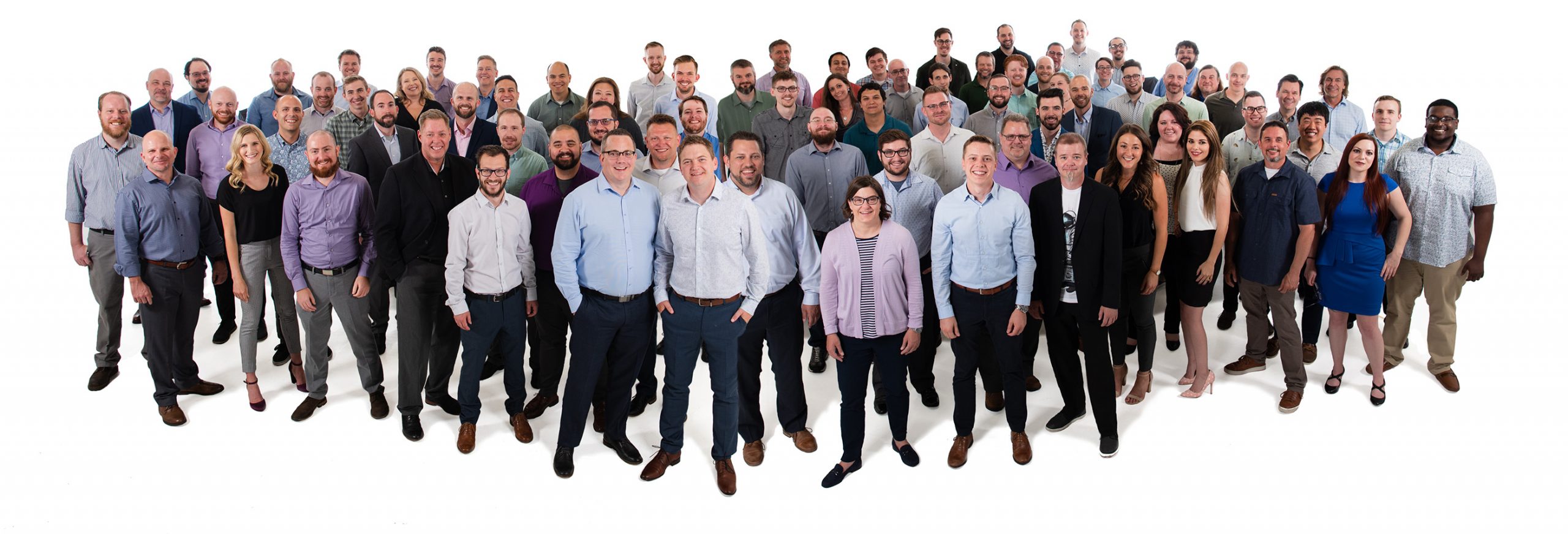You are getting ready to go somewhere that is only a few miles away and check your GPS to find the best route and how long the trip will take. It shows 28 minutes to go 5.6 miles. WHAT?! That’s how it was for me when I was on my way to our co-hosted event with General Assembly, Tech and Transportation. Ironic.
We have all been there, and it’s frustrating. How are we going to solve these issues around congestion and improve the urban experience? The answer is simple:Â Data. Blinker, Parkifi and CDOT’s RoadX program are using technology to collect data that they can turn into solutions. Each company is focusing on solving different problems, but all support the end user:Â you.
Blinker, an app for people buying or selling a vehicle, takes the used car salesmen out of the process, and gives the power back to the people. They use patented image-recognition technology to make it quick, easy, and safe to buy and sell without middlemen. They take most of the legwork out of buying and selling by doing it for you, act as your lender, take on title transfers, and notify you the rules and regulations of the county you are selling and registering in. They are also building new tools for people to manage the ownership of their vehicles, like recall alerts and service notifications. Despite bringing a new-tech approach to an age old business, Blinker knows they have to focus on understanding and serving their customers. “People do everything you can imagine, but you can’t assume they will do it, ” – Andrew Price, VP of Marketing.
Parkifi is an app that uses smart sensors to track occupancy of parking lots, garages, and metered spaces to give users real-time feedback on where parking is available and how much it will cost. This data can be used to predict traffic patterns, maximize profits for lot operators, and allows for consumers to save money while minimizing the amount of time owners spend looking for a parking space. “At peak times, 1 out of 3 cars in downtown are looking for parking. This issue creates more congestion,” Andy Zurcher, Executive VP of Product for Parkifi. In addition to congestion, this search for a parking lot contributes to dumping more carbon into our atmosphere. Parkifi will soon be installing their sensors on parking meters in downtown Denver so we can all benefit from our local grown tech.
Colorado is beyond being able to build its way out of congestion, and it’s time to start thinking data. RoadX is a program developed by CDOT. They are using up to date technology ingenuity to solve our current infrastructure challenges. That means smarter roadways with more informed drivers and, eventually, self-driving cars that can communicate with the roads, infrastructure like signs, and even other cars. Peter Kozinski, Director of the RoadX program, says, “We see data as the new asphalt.” RoadX projects include metering the highway to manage congestion and building roads that charge electric vehicles as they are driving. However, the primary focus of the program is autonomous vehicles. Safety is a huge focus for RoadX. Autonomous vehicles will save a lot of lives because they will be able to improve the insufficiencies that are a part of our current system (i.e. human error). The computers in autonomous vehicles will be able to talk to each other and will communicate a sudden stop, say on I-70, 15 cars ahead, preventing a multiple car pile up. RoadX is working with Panasonic in this pilot program. Just last year, they had a self-driving truck transport beer from Fort Collins to Colorado Springs successfully. Colorado is the first and only state to have a program with autonomous vehicles like this one, and this program will be framework for how autonomous vehicles will operate in other states.
One commonality these companies have with each other is that they are collaborating with the “other sector,”  in the form of private/public partnerships. Blinker works with every county in the state (and soon to be other states) to ensure that they are abiding by every rule and regulation for reach county. Parkifi is working with the City of Denver and it’s Smart Cities initiative. Andy says “The public sector creates a sandbox where private businesses can play and test in Denver.” Besides Panasonic, RoadX is welcoming startups to established companies to participate in the program. The partnership between public and private sectors will save time and headaches.
In the next five years, you will see Blinker expand to other states, offer subscription driving services, and become a “digital glovebox.” Parkifi hopes to use its data to have more predictability on when people are coming and going, and create a “uber for parking” where people pay for the time that they are in the space. RoadX is paving the way and creating the national standard of how autonomous vehicles will operate on the road.
“Vehicles are computers, and we are building the Internet.” – Peter Kozinski, RoadX

